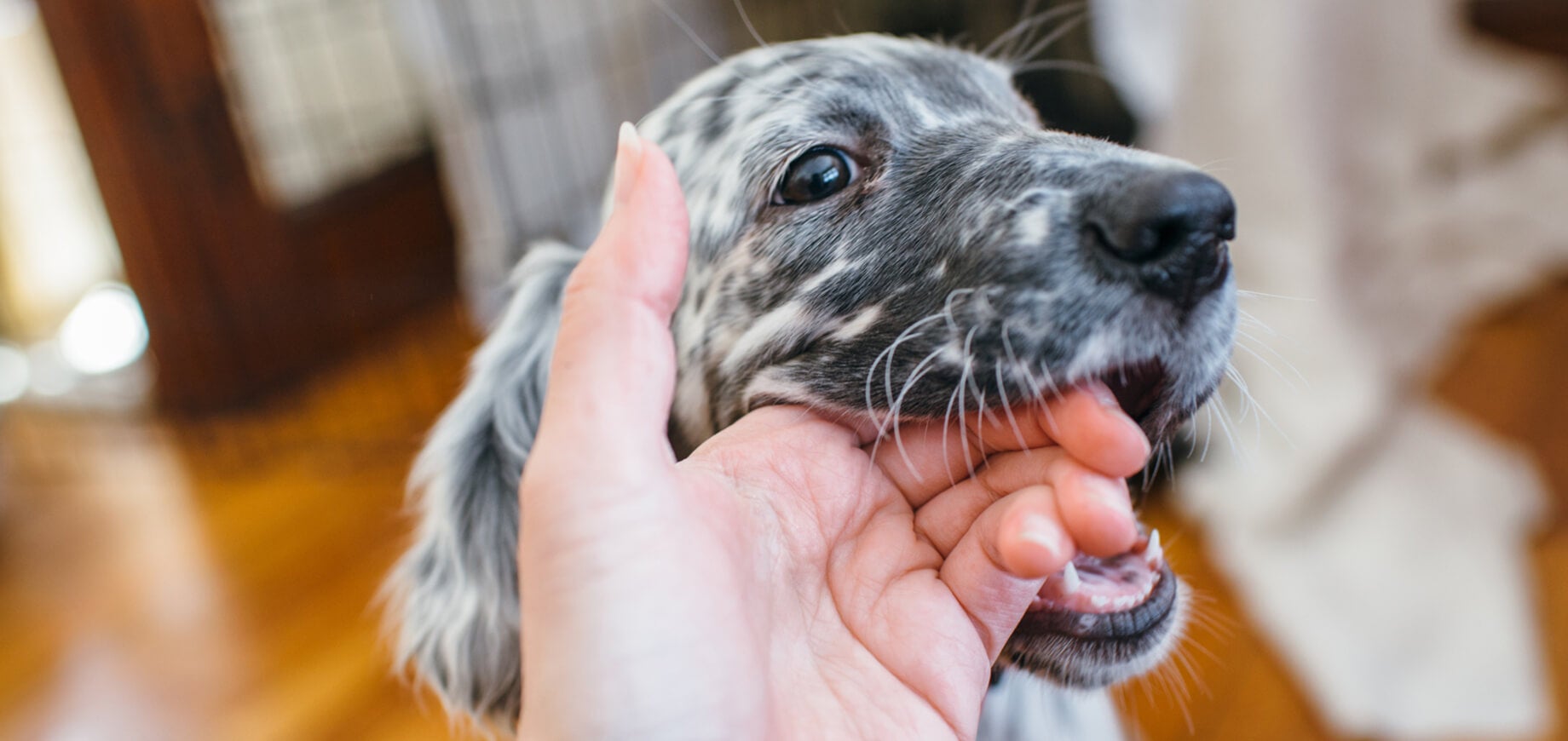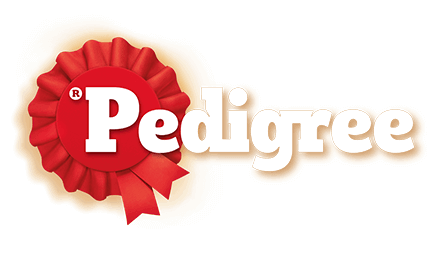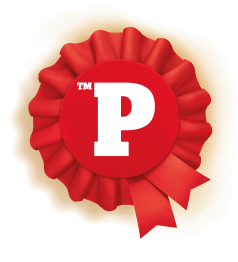Find products that match your dog’s needs

When addressing the issue of how to stop a puppy from biting, it is essential to understand the underlying causes of this behaviour. Puppies explore the world with their mouths. During their teething phase, they tend to nip and bite to alleviate discomfort. A puppy’s biting habit can also be a way for them to engage in playful communication. It is important to determine whether your puppy is biting due to playfulness, teething, or as a response to being overstimulated or anxious. The motivation behind the puppy’s biting is the deciding factor for the most effective training and management. For example, a puppy that bites when excited will benefit from calming exercises, while one that nips when bored may require more mental stimulation.
When learning how to train a puppy to stop biting it is important to be patient, consistent, and use positive reinforcement techniques. Here is how you can guide your puppy towards better habits when thinking of how to make your puppy stop biting.
This is when puppies play with their littermates, and if a puppy bites too hard, their sibling will yelp. These responses teach puppies to be gentle. You can use the same by communicating pain with a simple “ow!” if your puppy bites too hard. Then, praise the little one with positive reinforcement or treats when it learns to ease up. Managing puppy biting habits with this trick is not only easy but also trains the pup to be gentler.
Another effective method to follow when wondering how to get your puppy to stop biting you is by ending playtime as soon as it bites. If your puppy bites you, immediately stop the game and walk away. This teaches them that biting results in the loss of their playmate's attention. You can also use commands like ‘stop’ and ‘don’t’ to ensure the puppy stops biting at once.
Make it a point to get your puppy a set of chew toys. Puppy biting can effectively be controlled if you simply redirect their attention to the toy. You can also learn how to stop a puppy from biting by investing in dog teether toys, designed for puppies in the teething stage.
Learn to recognize when your puppy is about to nip and distract them with a toy or a command before they bite. Act on instinct, as soon as you notice the pup trying to chew on things, get ready to distract it. Puppy biting habits can easily be controlled if you simply correct this habit a few times, consistently.
Another full-proof method on how to train a puppy to stop biting is by putting it on time-out. If your puppy is starting to act naughty, put it in a time-out till it can calm down. A short period in a puppy-proofed room or the crate can help it reset.
Puppy biting might sometimes be linked to their need for a break or a stroll outside. Recognize these cues and provide them with the necessary downtime or bathroom break. Following this method is an easy fix for how to stop a puppy from biting.
Use moments of high energy to engage in training exercises. This not only redirects their biting but also helps them learn new commands. Overcoming puppy biting habits through appropriate training is easy, and highly effective for efficient communication with it in the future.
To learn how to get your puppy to stop biting you, one of the best things you can do is offer them treats. Whenever your puppy chooses not to bite, reinforce this behaviour with treats and praise.
While most puppy nipping is not aggressive, there are instances where it can be a sign of a deeper issue. Hence, it is always better to learn how to stop a puppy from biting as soon as they start developing nipping habits.
If your puppy lunges and bites to guard food or toys, this is a behaviour that should be addressed with the help of a professional trainer. Resource guarding is a behaviour that puppies develop to safeguard their food and other belongings. If you start noticing your puppy being extra protective and slightly aggressive about its belongings, it is time to learn how to stop a puppy from biting.
If biting is accompanied by growling or snapping without the typically playful body language puppies have, this could be a sign of aggression. Tricks for how to get your puppy to stop biting you have the potential to help your little furball control its aggressive biting habits.
Understanding the signs of fear, stress, and anxiety in your puppy can help you distinguish between playful nipping and potential aggression.
Learning how to make your puppy stop biting comes with constant training. Puppy nipping and biting is a phase that goes by smoothly, if approached with the correct training methods. It is important to equip yourself with the right chew toys, training techniques, and patience. Engage regularly in training exercises to teach your puppy acceptable behaviours in place of biting. If you maintain a consistent approach, your puppy will learn that nipping is not a desirable way to interact, paving the way for a well-behaved adult dog. Remember, the key is to redirect their natural behaviour to more appropriate outlets, not to suppress their innate desire to explore and interact with their environment.
Most puppies bite until the age of 7 months.
Engage in effective training methods. For example, offering chewing toys is one of the most effective precautions you can take to prevent a puppy’s biting habit.
Unnecessary barking or growling is often associated with temper tantrums in puppies.
You can either follow training and reward methods or get help from certified dog trainers to help your puppy overcome biting habits.

Find a PEDIGREE® stockist
near you!
Buy online
Click to buy from any of the retailers below

